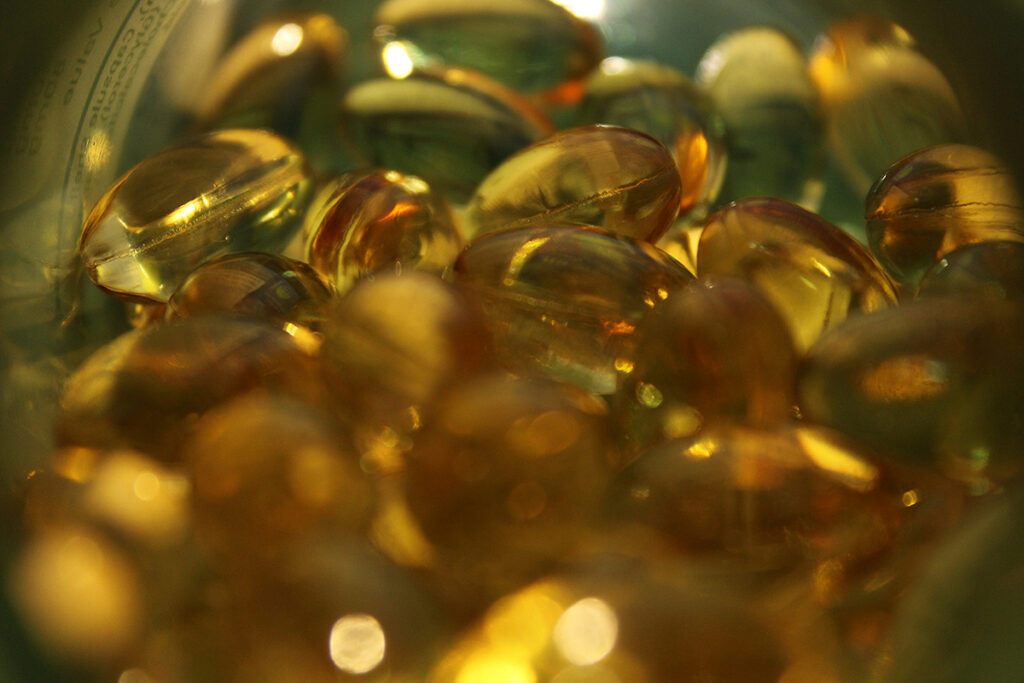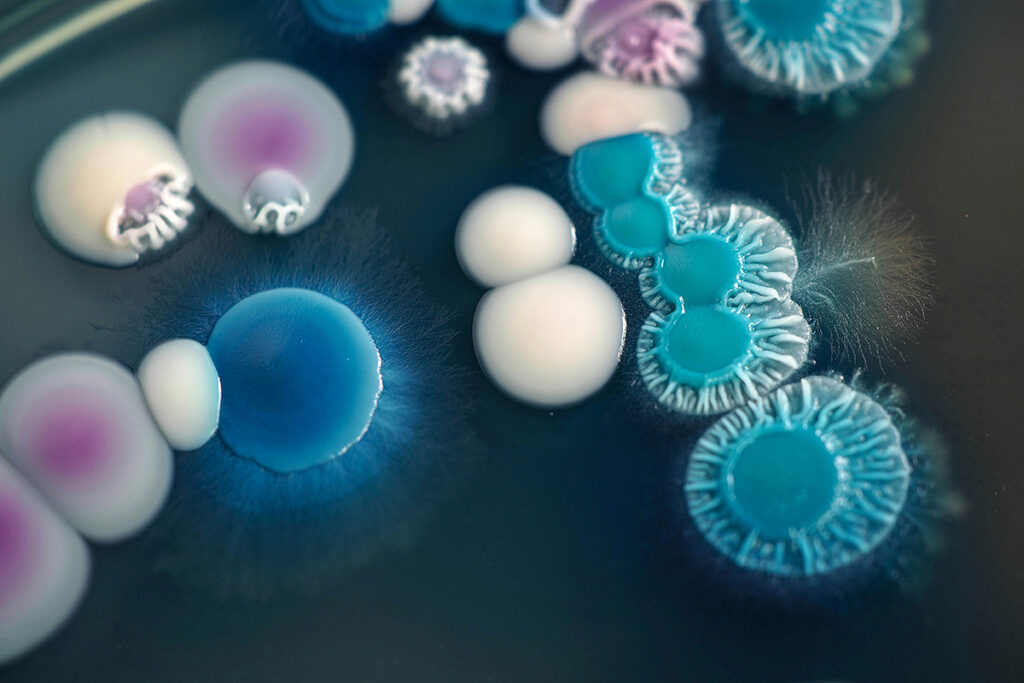Content
Interferon and Depression
Systemic administration of interferon-alpha (IFN-α) and other cytokines can suppress the ability to experience pleasure and reduce motivation. When treated with interferon-alpha, 15-40% of patients develop major depressive disorder (MDD).
On the other hand, many inflammatory cytokines are elevated in depression:
- Interferon-alpha and other cytokines can suppress the serotonin and dopamine systems.
- High levels of the inflammatory cytokine IL-6 before IFN-α therapy are associated with subsequent MDD.
Prophylactic use of SSRI antidepressants (selective serotonin reuptake inhibitors) can halve the incidence of interferon-induced depression:
- For patients without depression, SSRIs prevent MDD when treated with interferon.
- For patients with a history of depression or with existing depressive symptoms, SSRIs prevent the recurrence of depression and counter worsening depressive symptoms.
Read more about the prevention of interferon depression in the article “Prevention of Interferon-Alpha-induced Depression“. The review is published in Dialogues in Clinical Neuroscience journal.
The World Health Organization estimates that 350 million people worldwide suffer from depression and anxiety. So far, there are no drugs that would rid the world of mental disorders. Monotherapy with antidepressants, such as selective serotonin reuptake inhibitors (SSRIs), serotonin and noradrenaline reuptake inhibitors (SNRIs), mirtazapine, and bupropion, treats major depressive disorder. Improvement is not immediate – patients may take 3-6 weeks to respond to SSRI/SNRI treatment. At the same time, in more than 60% of patients, there is no improvement in depressive symptoms, and more than 70% of patients experience a re-episode of MDD after stopping treatment.
In Canada, more than 6.7 million people live with mental health problems (compared to 3.5 million with type-2 diabetes). The economic cost of mental health problems is estimated at $50 billion per year.
Nutrition and depression
Biologically, nutrition is linked to depression through hormonal, neurotransmitter, and signaling pathways in the gut that modulate brain functions such as appetite, sleep, reward mechanisms, cognitive functions, and mood. For all the biochemical pathways to work correctly, you need vitamins and minerals. For example, the production of serotonin (as the main neurotransmitter), associated with depressive disorders, requires vitamins B6 and D, iron, copper, and molybdenum. An insufficient level of nutrients impairs metabolic processes.
There are several nutrients associated with mental disorders and brain functions: b vitamins, vitamin D, choline, iron, zinc, magnesium, S-adenosyl methionine, taurine, and other amino acids or probiotics.
No nutrient is released to treat mental health problems. We studied the use of only vitamin D separately from other nutrients for curing mood disorders. The result showed only a slight improvement in symptoms. The best results were obtained with the combined use of vitamin D and a group of B vitamins.
B vitamins are important for adrenal health and energy production. Both B vitamins and vitamin D are involved in the synthesis of neurotransmitters.
Therapy based on multivitamins and trace elements can alleviate symptoms of depression and anxiety.
Pure North chronic disease prevention program
Pure North is a non-profit wellness program focused on chronic diseases’ prevention, including mental illnesses, type 2 diabetes, heart disease, and cancer.
Pure North offers its members lifestyle tips with educational materials and nutritional supplements.
Pure North dietary recommendations for preventing hypertension and achieving physical health:
- consume 5-10 servings of fruits and vegetables per day;
- add foods rich in omega-3 fatty acids to your diet;
- limit sugar intake to less than 25g/day;
- limit salt intake to less than 2.3g/day.
Pure North’s lifestyle recommendations:
- proper sleep regime;
- refusal of smoking;
- moderate alcohol consumption;
- at least 150 minutes of physical activity every week.
Recommendations are supplemented for each participant individually, based on blood tests, biometric measurements (body mass index), and taken medications.
For each participant, a treatment plan is being developed according to the individual’s nutritional needs. All participants are recommended to reach a serum level of 25(OH) D of at least 100 nmol/l.
Food supplements provided to the participants in the Pure North (daily pack Vitality Pack):
- multivitamins and multimineral formulas (Vital 2 Platinum);
- omega-3 fatty acids (400 mg EPA and 200 mg DHA);
- vitamin C (1000 mg);
- vitamin B12 (5000 mcg of methylcobalamin);
- probiotics (Bifidobacterium and Lactobacillus strains, 10 billion CFU);
- vitamin D3 drops. vitamin D3 Supplements are individualized to achieve optimal concentrations of serum 25-hydroxyvitamin D (25 (OH) D) above 100 nmol/l. Doses of vitamin D3 often exceed the upper permissible intake level (4000 IU / day) and are prescribed under the supervision of a doctor;
- additional additives may be recommended depending on individual requirements.
Participants’ health in the Pure North program is assessing during the clinic visit for every 6-12 months.
Health assessments include:
- biometric data: blood pressure, height, weight, body mass index;
- use of medications;
- diseases that may affect the absorption of vitamin B12 (for example, pernicious anemia and H. Pylori). Modern medications, including acid blockers and proton pump inhibitors, can affect the absorption of vitamin B12;
- health complaints and goals;
- blood test. Biomarkers are measured: serum 25 (OH) D, vitamin B12, arachidonic acid (AA) and eicosapentaenoic acid (EPA);
- filling in the questionnaire (demographic data and assessment of the state of his health).
How does the optimal nutrient level affect anxiety and depression?
Part of the Pure North program is to optimize the vitamin D level. Low vitamin D level is associated with mental disorders, including depression.
We studied the influence of the Program on anxiety and depression. The study assumed that optimal nutrient level, measured by serum level of 25-hydroxyvitamin D (25 (OH) D) above 100 nmol/l and vitamin B12 above 450 pmol/l, would protect against depression and anxiety. Another part was to find that a dietary supplement (in the optimal nutrient level) could reduce the manifestations of depression and anxiety.
The study involved 16,020 people between the ages of 18 and 95. 16% of participants self-reported mental health problems or previous diagnoses of depression, anxiety, stress, attention deficit/hyperactivity disorder (ADHD), post-traumatic stress disorder (PTSD), seasonal affective disorder (SAD), and other mental health disorders.
In the beginning, 84% of participants had a suboptimal vitamin D level (< 100 nmol/l), and 14.7% had a deficiency (< 50 nmol/l). 75.5% of participants had a suboptimal level of vitamin B12 (< 450 pmol/l). The EQ-5D questionnaire was used for self-assessment of health status. EQ-5D reflects the impact of mild to moderate depression and anxiety on daily life. In addition to the EQ-5D, a TSL questionnaire was also introduced. TSL emphasize the common health complaints including anger, anxiety, confusion, coordination problems, depression, fatigue, headache, joint pain, loss of sensation (smell/taste), memory loss, crankiness, muscle weakness, hands/feet numbness, hand tremors, stomach problems (digestion), and unintentional falls. Depression/anxiety severity and lifestyle correlation:
- Participants who reported severe or extreme depression/anxiety (at the beginning of the program) often did not eat fruit, vegetables, and fish, or consumed fewer portions compared to those who were not depressed or anxious.
- Participants who used to smoke tobacco and drink a lot of alcohol together with little physically active have also reported severe or extreme depression or anxiety when entering the program.
- Serum level of 25 (OH) D was significantly lower in patients with depression or anxiety who were less physically active (66.5 ± 28 nmol/l) compared to those who were more physically active (76 ± 24 nmol/l).
56% of participants had an increased level of depression and anxiety at the initial stage of the study. After one year in the program, 49% of participants who reported any level of depression or anxiety at the initial stage reported improvement later. Of those who reported severe or extreme depression at the beginning of the study (829 people), 97% reported improvement after 1 year.
After 1 year of participation in the program, 62% of participants had a serum level of 25 (OH) D above 100 nmol/l, while only 25% of participants had this level at the beginning of the study.
Serum level of 25 (OH) D up to 300 nmol/l was found to be safe without any signs of toxicity. After taking vitamin D and significantly increasing serum level of 25 (OH) D, none of the participants have reached a level above 300 nmol/l. There also were no cases of vitamin D intoxication.
The regression analysis has revealed a link between the reduced level of depression or anxiety with higher vitamin D status (>100 nmol/l) and more intense physical activity.
Although optimal levels of vitamin D are vital for almost every cell, it is not enough for the proper functioning of the body’s metabolic systems. When the body is provided with all the necessary nutrients for metabolic processes, it increases the resistance to stress and the ability to cope with mental difficulties. Maintaining an optimal level of nutrients along with moderate physical activity has a protective effect not only on physical but also on mental health, helping to fight anxiety and depression.
Folic Acid to Treat Depression
Folic acid (vitamin B9) is a water-soluble vitamin of group B. Folic acid is important for synthesizing monoamines: serotonin, adrenaline and norepinephrine. Folic acid is not synthesized in the body but comes from food.
Low folate levels are associated with a high risk of depression, severe depressive symptoms, prolonged duration of depressive episodes, and increased risk of relapse. In addition, folic acid deficiency is associated with a lack of response to antidepressant treatment.
A meta-analysis of 6 randomized controlled trials showed that folic acid increases the effectiveness of antidepressants:
- Patients taking folic acid and SSRIs/SNRIs are 36% more likely to respond to treatment.
- Patients taking folic acid are 39% more likely to experience remission.
- Folic acid reduces depressive symptoms. The effect develops early in treatment.
Folic acid is safe as there are few interactions with other medications and few side effects.
Read more about folic acid in the article “Folic Acid Increases The Efficacy of Antidepressants” The review was published in ScienceDirect journal.
References
- Major depression during interferon-α treatment: vulnerability and prevention
- Database Analysis of Depression and Anxiety in a Community Sample—Response to a Micronutrient Intervention
- Folate as adjunct therapy to SSRI/SNRI for major depressive disorder: Systematic review & meta-analysis



